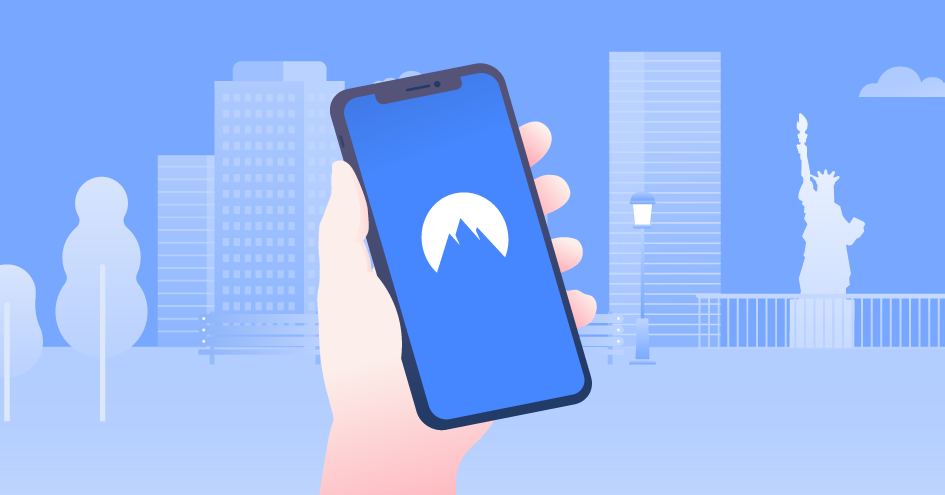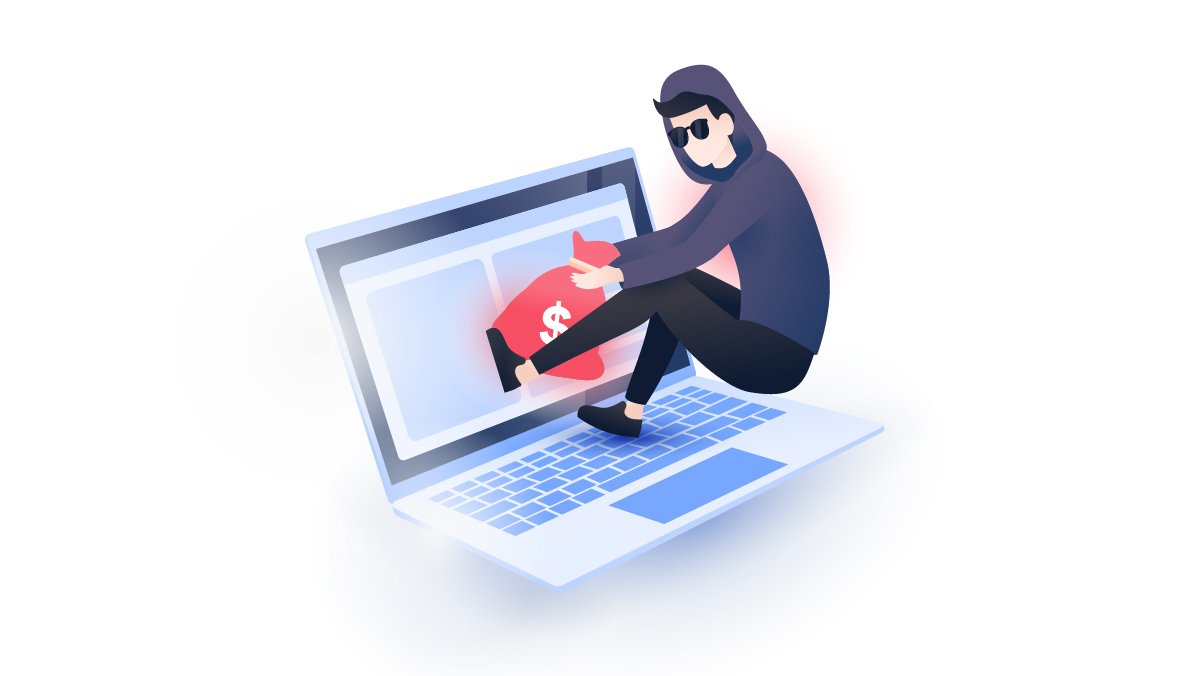Safe public Wi-Fi with a VPN
Are you safe accessing public Wi-Fi? If you're not using any additional cybersecurity tools, the answer is probably no. While public Wi-Fi can be incredibly convenient, connecting to the internet in a cafe or an airport could put you at the mercy of ruthless cybercriminals. But can a virtual private network protect you on public Wi-Fi?
Charles Whitmore
Dec 10, 2021 · 6 min read

Public Wi-Fi networks are the perfect targets for hackers – most lack even basic network security measures, and some may have actually been set up by cybercriminals in the first place. If you want to enjoy the convenience of free public Wi-Fi without putting yourself at risk, you need a VPN.
Contents
Does a VPN protect you on public Wi-Fi?
A VPN is one of the most robust and secure methods you can use to protect your devices – it was practically made for use with public Wi-Fi.
It sends your traffic through an encrypted ‘tunnel’, making it extremely difficult to decipher or intercept. Having an app on the devices you use to connect to a public network will provide you with this encryption on-the-go. We always recommend using a VPN on free public Wi-Fi hotspots.
How does a VPN protect you on public Wi-Fi?
Public Wi-Fi networks offer hackers a great opportunity to target new victims. Public connections are often poorly protected and easily accessed by criminals.
Alternatively, bad actors can set up their own router and give it an innocuous name like “Free train Wi-fi”. As soon as a commuter unthinkingly connects to the network, their private data can be exposed.
When you use a VPN, your internet traffic gets encrypted, so no one can intercept it via public Wi-Fi. VPN secures your connection everywhere, so you no longer need to care about external protection. Cybersnoopers won’t be able to penetrate the wall of encryption and you will stay secure.
The dangers of public Wi-Fi
What are hackers after when they take advantage of public Wi-Fi? Any and all your personal information. Here are just a few examples of the valuable data you could expose:
- Your email login.
- Your bank details.
- Your personal photos and videos.
- Your home address.
And here are just some of the things hackers can do to take advantage of public Wi-Fi:
- Evil Twin attack. It’s easy to rename routers to literally anything. Cybercriminals will create fake Wi-Fi networks to fool you into connecting. You’d probably connect to a public Wi-Fi called “Starbucks_Wifi_Free” in a heartbeat – without knowing that a hacker might be running it.
- Malware injection. An insecure connection may result in difficult-to-detect malware slipping into your computer. It can steal your bandwidth, damage your system, and provide hackers with a backdoor to all your personal files.
- Man-in-the-middle (MITM). The cybercriminal places their device between the connection with your device and the Wi-Fi spot. This discreetly allows them to monitor your activity and even control your traffic, potentially redirecting you to a site of theirs that will fool you into entering your credentials or banking details.
- Wi-Fi sniffing. More of a passive act rather than an active assault like MITM. With the use of basic and legal software, a hacker can monitor and log all data packets passing through a Wi-Fi network.
Enhancing public Wi-Fi with a VPN connection will render all of the above attacks useless. The encryption process effectively shields all your data from prying eyes. While the would-be hacker will be able to see that you are indeed connected to the internet through public Wi-Fi, they won’t be able to see the details of the traffic transmitted.
Estimates say that 81% of Americans use public Wi-Fi hotspots regularly. However, only 1% of Americans enable a VPN to enhance their security while on public networks. The number of people using a VPN when connected to Wi-Fi is slightly higher in France (2%) and Germany (6%).

Surprisingly, almost half of Americans surveyed believe that public Wi-Fi is safe and doesn’t require additional precautions. This is a dangerous attitude and might cause users a lot of trouble in the long run. For those looking to protect themselves after hearing these alarming statistics, take note that some of the worst places you can use public Wi-Fi are big public coffee shops or restaurants, airports and hotels. The more people that have access to a public Wi-Fi hotspot, the higher the risk of danger.

Can a public Wi-Fi provider see your browsing history?
Yes, a public Wi-Fi provider can potentially see your browsing history. It’s not a given because it depends on the router they are using. But modern Wi-Fi routers keep logs – what domains you visited and for how long. And if you browsed in a webpage without proper TLS/SSL encryption, they would also log the exact pages you read and the information you entered.
On mobile devices, it gets even more complicated. The Wi-Fi owner can see who you called or texted online, which apps you used, and for how long.
Can Wi-Fi block VPN?
While most public Wi-Fi hotspots won't be sophisticated enough to block VPNs, some internet service providers can use an IP lookup tool to find the physical location on the VPN server, then use a firewall to block that IP address. Luckily, NordVPN has thousands of other servers to choose from, so the solution is just to pick a different server.
How to stop a public Wi-Fi hacker
The main way to prevent any hackers breaking into your devices and intruding your internet connection via a public network is to educate yourself. Once you’re aware of the risks that face you, you’ll also be up-to-date with how to prevent them. Here are the things you need to remember:
- Disable automatic connections. If you regularly take advantage of every public Wi-Fi node you can find, you may inadvertently latch on to a network you weren’t planning to.
- Don’t carelessly connect to any public Wi-Fi. If you’re using the public Wi-Fi network of a popular fast-food restaurant or coffee chain, ask the staff for the exact name you need to search for.
- Don’t log into any sensitive accounts. When tethered to public Wi-Fi, don’t use the connection to access any accounts that hold information of a sensitive nature. If any hacker is sniffing around that network, your details may have just been picked up.
- Turn off file sharing and check your firewall. Simple checks that often get missed. While file-sharing is helpful in your own network at home, having it turned as you’re connected to a public Wi-Fi network is a formula for bad news. Make sure your anti-malware software is also active.
- Get a VPN, because your data is valuable, and needs to be protected. With VPN security, you'll be able to enjoy the convenience of public Wi-Fi without the risks. A VPN also hides your IP address by connecting you to a VPN server, rather than one owned by your ISP. This means your activity can't be tracked by third parties.
How to choose the best VPN
With so many VPN service providers out there, it’s hard to make the correct choice. Here a few aspects to pay attention when choosing a VPN:
- Strong encryption. Make sure your VPN use the most up-to-date encryption standard and guarantees proper protection and secure connection;
- Tons of security features also help a lot especially if you operate in more high-risk areas. So make sure your VPN offers such services as obfuscated servers, concealing the fact that you use a VPN, or Kill Switch, which disconnects your from internet if you lose a VPN connection;
- Good customer support in case you encounter a problem;
- Also avoid obscure free VPNs as they usually don’t offer a reliable service. They most likely monetize their activities by collecting your data, passing it to third-parties or ad-targeting you, so in the end they do more bad than good. Moreover, they also can have quite limited functionality and experience data breaches;
- Ability to protect several devices. In this case you will be able to protect your mobile devices and laptops with a single account and even your other household members. Make sure you will be able to use a VPN service on your mobile as we carry these devices with us exposing them to various unsafe Wi-Fi spots.
So, the best choice would be to buy a subscription service – you know exactly what you’ll be getting for the money you pay. Here’s what you get with NordVPN:
- Trusted security. There’s a reason NordVPN won best VPN of 2019. As any NordVPN review will tell you, our product is dependable and effective.
- Strong encryption. Our servers are secured with an AES-256 cipher – the same kind of encryption that governments use for their own systems.
- Stronger encryption. If the promise of one of the highest forms of encryption isn’t enough for you, then you can choose to run your traffic through 2 different servers using Double Encryption.
- Widest coverage. NordVPN offers physical servers located in countries, more than any other premium VPN services.
- Easy setup. Once NordVPN is installed on your device, all you need to do is select a server. All it takes is a button press.
- Protection for up to 6 devices. NordVPN allows you to secure all your personal devices or share it amongst your loved ones. It's also available on all major operating systems.
- Protection against malicious threats. The CyberSec feature will automatically stop you from entering blacklisted sites. It will also stop invasive auto-play ads.


